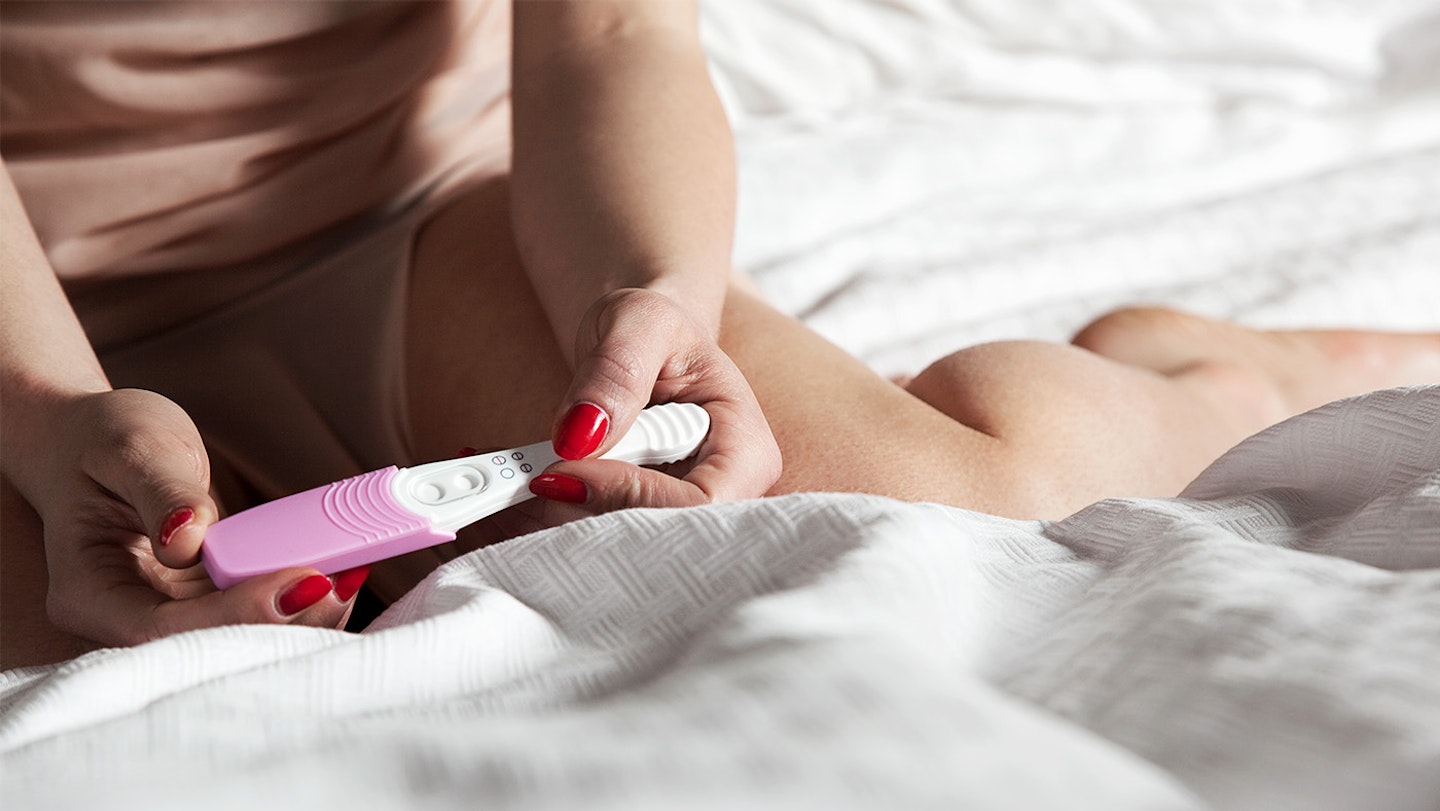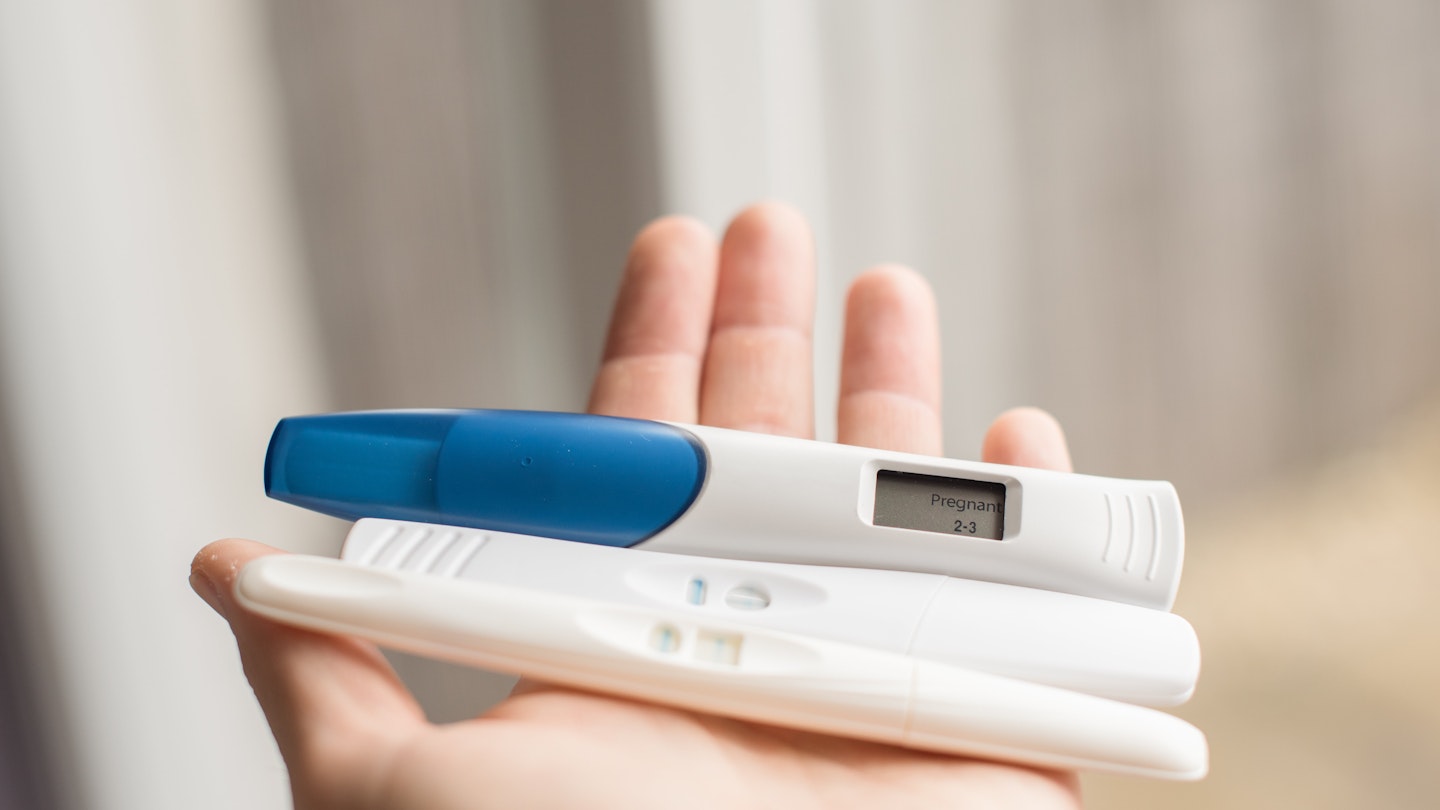If you’ve been trying to conceive and are wondering if you could be pregnant, the best way of finding out if you’re expecting is by taking a home pregnancy test. Although you've probably dreamed about that moment when you can finally take a pregnancy test and are waiting for the result to show, you might be surprised to find that actually, there are not only a lot of different pregnancy tests to choose from but a variety of price tags too.
From well-known brands like Clear Blue to supermarket own brands, you can sometimes be looking at paying over £10 for a pack of two tests. But is it worth spending a few more pennies on an expensive pregnancy test? Or do you get exactly the same result by spending less on a cheap pregnancy test?
Is there a difference between expensive and cheap pregnancy tests?
All pregnancy tests work the same, by measuring the levels of human chorionic gonadotropin or hCG in your urine. This pregnancy hormone is produced by the placenta and it can show up in a pregnant woman’s urine and blood as soon as an embryo has implanted in the uterus.
This implantation takes place around 6-12 days after the egg has been fertilised and a pregnancy test can pick up the levels of hCG around 19 days after fertilisation to detect early pregnancy.
All tests that claim so should give you at least a 99 per cent accurate result if used correctly, so there should be no difference in the accuracy between cheaper tests and more expensive tests.
Tests such as the First Response claim to give you results as early as six days before your period due date. It is worth however reading the small print - ‘The First Response kit is over 99 per cent accurate when used on the day of your missed period, your due date and the day prior to your due date. The Kit is 62 per cent accurate when used 6 days before the day of your missed period.’
Other tests like the Clear Blue test can tell you how far along you are, clearly showing how many weeks it’s been since conception. It does this by measuring the hCG levels in your urine as the further along you get, the more of this hormone you produce. It is worth keeping in mind however that this is just an estimate of how far along you are.
How much do expensive tests cost compared to expensive ones?
While this depends entirely on the brand and the features the test offers, for a well-known brand such as Clear Blue, you would end up spending between £8-£10 for a pack of two pregnancy tests whereas a cheap pregnancy test pack of two would cost you between £3-£4.
You’ll likely pay more for a digital test too which is understandable. And obviously, the more tests you want, the more you should expect to pay. For example, Clear Blue can be bought in a six-pack for mums who want to take multiple tests to be sure.
Are expensive tests more accurate than cheap pregnancy tests?
All pregnancy tests are 99 per cent accurate, whether you’re spending £5 or £10. The accuracy of the test however does depend on when you take it.
For example, if you take it after the first day of your missed period, it will be more accurate. If you take it the day before your expected period or the day of your expected period, it may be less accurate and you could get a false positive result (though these are rare) or a false negative.
That’s why it’s always best to take the test on the day or days following the day you were due on your period for the most accurate result, as testing too early could result in a false negative result.

Pros and cons of a cheap pregnancy test
Pros
• It’s cheaper
• It’s just as accurate as the more expensive ones if used correctly
• Just as easy to use
Cons
• They won’t have as many features such as telling you the number of weeks
• They may be more basic in design and not be a digital pregnancy test
• The result may be harder to read, especially if you get a faint line on your pregnancy test
Pros and cons of an expensive pregnancy test
Pros
• Can be more sensitive to hCG levels for a more accurate result sooner
• Can offer extra features such as a digital display
• Usually easier to read the result
Cons
• Higher cost for fewer tests compared to cheaper options
• No less chance of a false positive or false negative if you take the test before the day of your expected period
What pregnancy test is right for me?
It really depends on your personal preference - and your budget! Some women prefer a digital test as this tends to make the result much clearer than trying to work out if you can see a faint line or not. Other hopeful parents prefer a larger pack so they can do several tests to be absolutely sure. And if you're feeling super impatient, a more expensive and sensitive pregnancy test which can give you a result sooner could be the one for you.
Whichever type of test you decide to go for, just be sure to read all of the instructions before taking the test so you get the most accurate result possible. It's also worth checking the expiration date of the test (yes, even pregnancy tests come with an expiration date) as this will affect the accuracy of the result if it's past its prime.
Once you've done your pregnancy test, if it comes out with a positive result, you should always confirm this result with your doctor to make sure you're definitely pregnant.
